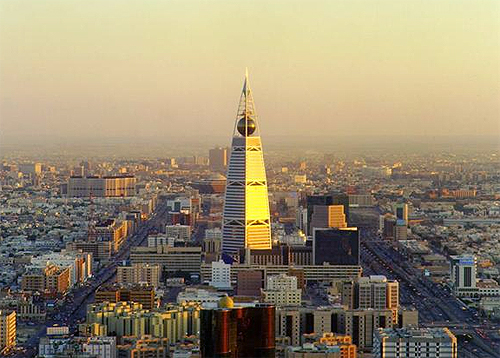There have been several reports in the media about Saudi Arabian Oil Co. (Saudi Aramco), Saudi Arabia’s national oil company, spinning out a portion of its business. One of these articles quoted an analyst that pegged the valuation of the “company’s” total assets at US$10 trillion. While I agree that there is value here, that figure seems much too high.
While clearly the whole thing could never go public, it is useful thinking in terms of what the whole company would look like if it were public. In my mind, a $10-trillion market cap requires returns to shareholders of $500 billion per year in cash with no risk, $1 trillion with some risk, or if it is in Congo (or other highly risky regions), $10 trillion in cash + $500 billion in cash flow. In no case do the Saudi assets warrant that valuation.
Ten million barrels a day for all Saudi oil production comes to 3.65b barrels per year. If we figure $100 billion a barrel in margin (this is the absolute best-case and assumes US$110 oil, $80 over what the price is today), that comes to $365 billion a year in earnings, and a valuation of $7 trillion for all of the production as 20x earnings and no tax burden. The downstream assets are worth even less, and could in theory have negative value even with current oil prices.
Here are my core issues:
1. Saudi Arabia has one of the largest per capita global social welfare programs going on. Giving away that much money to that many stakeholders increases the real cost of extraction from $10 to probably $70 per barrel. If the bankers think they are going to divert that social welfare cash to line their pockets they have to remember that Saudi is a consolidation kingdom, and a young one at that. If the cash is not paid the house does not stand. While this is not necessarily an issue for spinning out a portion of the business, it is important to think about in the context of the overall valuation.
2. Saudi oil is mature; it is not a growth business. I don't think they can triple the cash flow by growing production. In theory they could find shale gas or oil, but I would argue that the production profile is limited. They have averaged roughly 10 million barrels per day for the last five years, in a period of extreme demand growth.
3. Competition is serious: shale energy is becoming more widely consumed and oil & gas is getting cheaper, particularly when the exploration capital costs are removed in bankruptcies. Zombie drill rigs that were repossessed by banks a couple times over will be coming on-line and will operate for marginal cash cost of production. I don't see oil averaging close to $100 in the next five years.
4. Consumers have been trained to consume less. Cars, trucks, and everything else are getting more efficient, especially in China.
5. Consumers are near peak consumption. You can't fit more cars into Beijing, London, or lots of other populated cities. Without the roads and places to go, it's hard to burn oil. Cheap natural gas will eat into the oil market as well.
I also think it is stupid for the House of Saud to take the company public. On the positive side, the assets will be more transparent and will operate more efficiently. This, however, is not a family that values non-executive directors being upset about how things are being run. I can't imagine being a dissident director at a board meeting in Riyadh.
So they have a mature business where there are already stakeholders that are used to getting dividends (the citizens of Saudi Arabia); they have serious competition that is dropping its cost structure by 20-30% per year; and they have consumers who are learning how to consume less of the product they sell.
I will pass, and I don't even have to run a discounted cash flow to do it. Mind you, I hope the Kingdom is smart enough to pass as well.
Join the conversation at CEO Chat, the investment conference in your pocket.






















